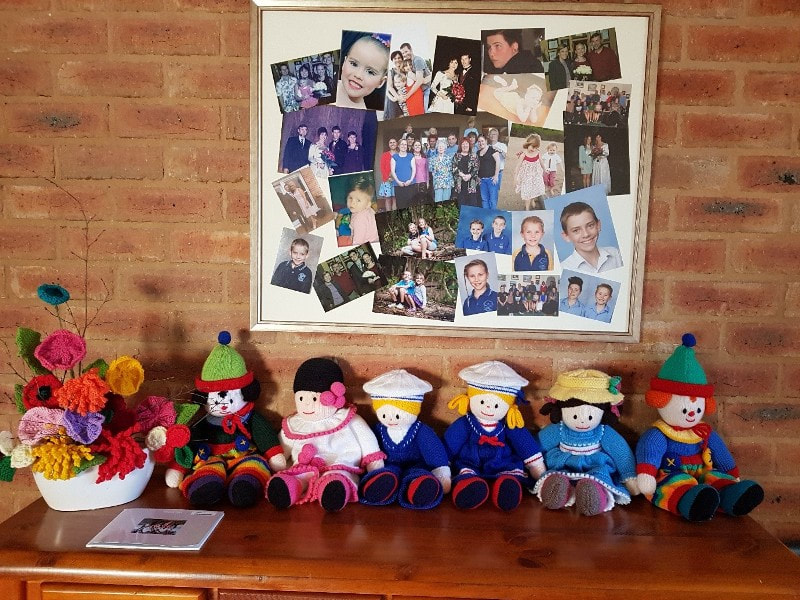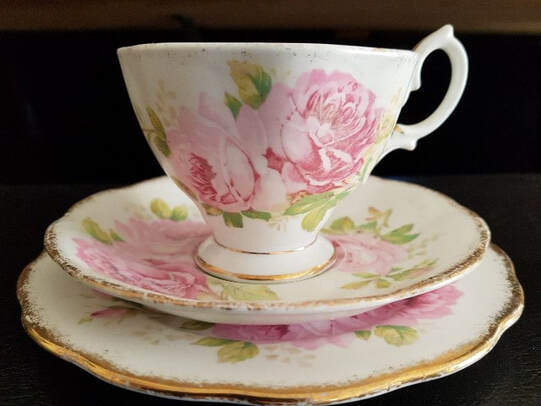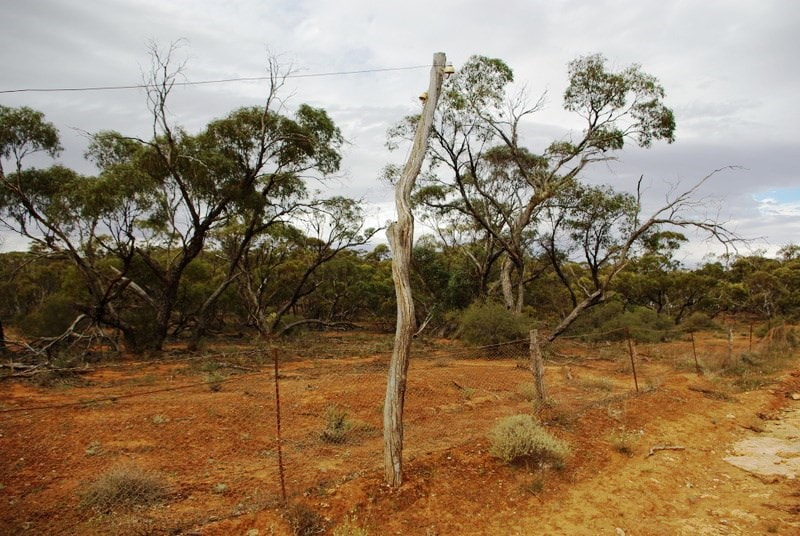I can still visualise that house and yard. To a child the garden seemed so big, with a chook run and woodshed far away on the back fence. The house was small and rather dark, with a detached bathroom and bedroom. The kitchen opened onto a veranda which housed a Coolgardie safe, a table, Pa’s chair - where he read the paper and smoked his pipe - and a huge plant stand.
The kitchen was very homely, with a black wood stove, a huge black kettle and Mrs Potts’ irons. As children, we loved to go there after school to eat Nana’s endless supply of Gingernut biscuits and make Milo with hot water and condensed milk. Having no refrigerator, the local dairyman, Foster Mackrell, delivered milk several days a week. I remember him riding his huge horse along the side of the house, picking up the billy hanging on the gate, and delivering milk back when he returned the cows to the paddock.
Early photos show Nana as a pretty, petite girl with dark curly hair and dark eyes, but I think she had quite a hard life. Pa was away a lot working at road building or farm labouring and she raised the children mostly alone.
When my mother was born, Nana Pascoe was over 40, considered a dangerous age to have a baby. She haemorrhaged badly and had to be taken to Wangaratta Hospital by train (no ambulances in Violet Town). To get her to the train, she was put in a cart and several men took the shafts and carefully pulled it to the station. Times have changed since then!
Later in life Nana slipped and fell, hurting her hip badly. She bravely carried on, refusing to see a doctor, relying on her Bex tablets and making a makeshift crutch from a broom.
Toward the end of her life a burst ulcer in one eye resulting in the removal of that eye, while the remaining eye had a cataract. Her near blindness was difficult, but she did not complain. I clearly remember the day I took Ray along to meet her. To his embarrassment, she pulled him over closer to her, looked him over, and declared he would suit Margaret!
We regularly had Sunday lunch with Nana and Pa Pascoe. I really enjoyed the simple meals of cold corned meat and salad or vegies, followed by fruit and custard, or nana’s plum jam tart (we called it “stone jam”) on the back veranda in summer. Mum would sometimes send us down the street for a Family Brick” of ice-cream.
I realise now that Nana Pascoe suffered a lot of pain, but I never remember her complaining or being cross. We were so lucky to have her till she was 84, setting such an example to us.
Margaret Nelson
July 2020




 RSS Feed
RSS Feed
